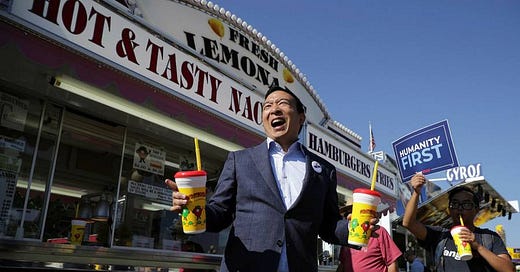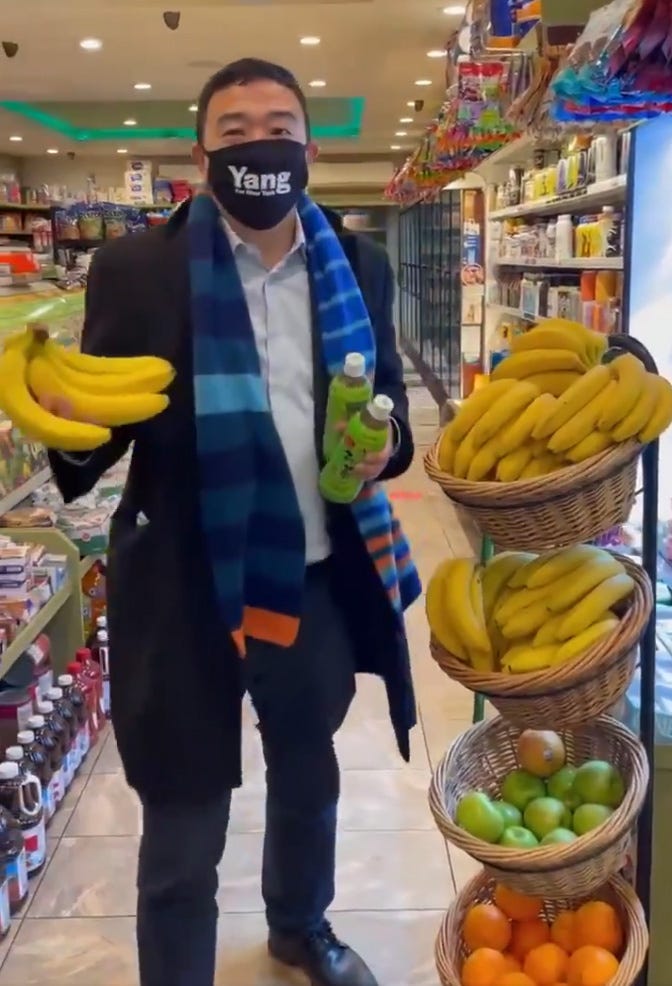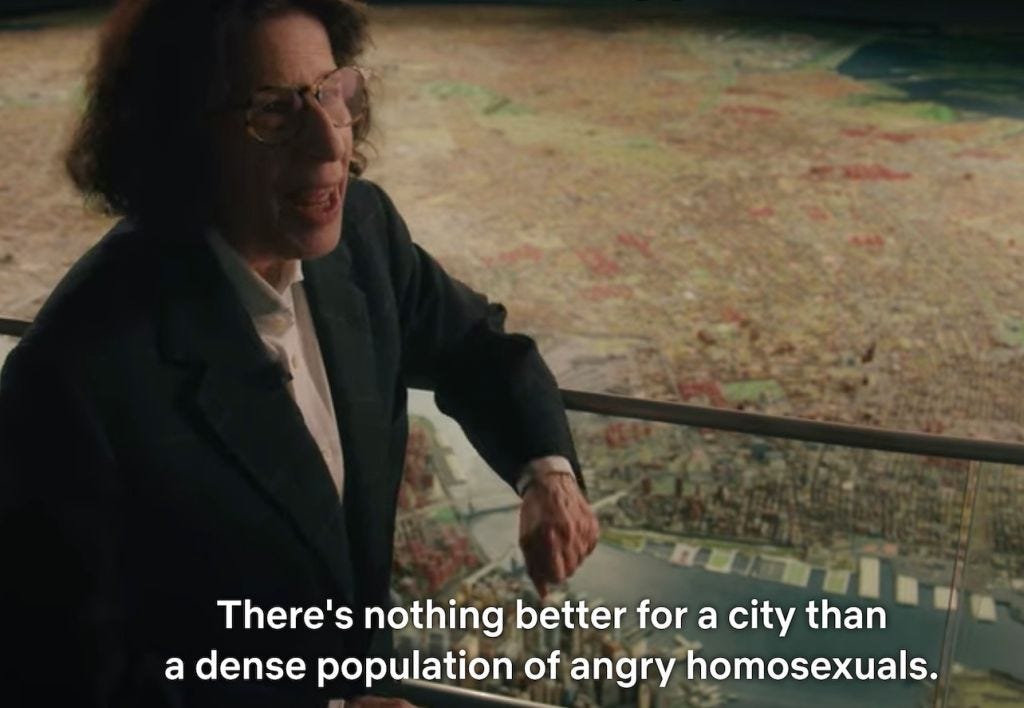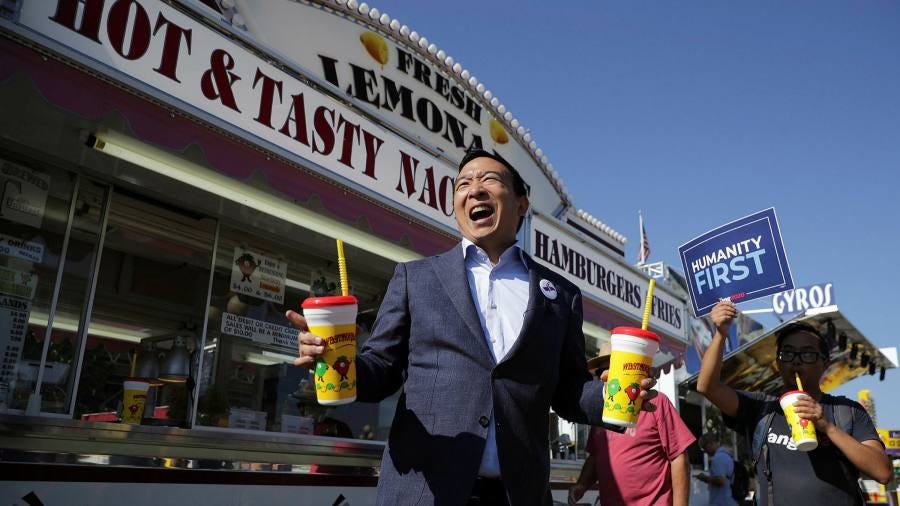There are the folks who categorize themselves as one of E.B. White’s New Yorkers, which he spells out in his essay “Here is New York”: the native, the transplant, the commuter.
More recently, there is the fourth New Yorker: those who stayed and rode out the COVID-19 epidemic.
Ask New Yorkers what makes you a real New Yorker if you’re from out of town, and you’ll get a litany of responses. Crying on the subway—big, ugly, unsightly crying—makes you a New Yorker. After living here for seven years, you can call yourself a New Yorker. Still others say it’s when you become the kind of person who says “there goes the neighborhood” when a cheap restaurant or coffee shop closes, meaning you’ve been here long enough to grow nostalgic for a specific micro-era of a perpetually evolving city.
There are many tests and ideas about what makes a New Yorker, but few concrete answers. Like porn, you can’t define it but you’re supposed to know a New Yorker when you see them.
This tenuous lack of definition has been everywhere recently, in part because the political news cycle is finally allowing some breathing room for the upcoming NYC mayoral election in November 2021.
This week, The New Yorker’s Michael Schulman juxtaposed Andrew Yang’s hilariously tone-deaf mayoral campaign promotion alongside beloved-NYC-queer-writer-critic-and-grouch Fran Lebowitz in the much-hyped new documentary series, “Pretend It’s a City” (directed by a Queens native who is not Trump! but rather, Martin Scorsese). It’s a fun juxtaposition, if one that’s far more fraught in my opinion than what Schulman covers.
When Andrew Yang, the tech bro/entrepreneur/former presidential candidate of Yang Gang and UBI fame, announced his run for NYC mayor, his media interactions and social media promotional work did not prove to New Yorkers that he’s actually a New Yorker himself.
When questioned by the New York Times about his family’s decision to split their time between their 2-bedroom apartment in Manhattan and a house upstate in New Paltz, Yang told the reporter that they just couldn’t handle remote learning with two kids in a small apartment (which, given the state of remote learning in NYC, is nowhere near the biggest challenge local families with school-age children are currently facing).
Taking his cues from Instagram and foodie culture, he’s posted pictures of himself eating at The Pickle Guys and Gray’s Papaya and Doughnut Plant. Twitter has also thoroughly dragged him for filming himself in a “bodega” that looks far closer to an old Duane Reade than a small, locally owned corner store that sells dusty cans of black beans as well as a fresh chopped cheese.
Being a New Yorker requires knowing the beats of the city, a pulse of life here that is, in theory, particular to us all despite our privilege or status or success. Yang isn’t passing the test, or at least not yet.
That isn’t to say he won’t one day. I for one don’t think all of his ideas are bad. But his earnestness and promo videos directed by the infamous Darren Aronofsky (which…why?) seem removed from the city’s heartbeat over this past year especially.
A real New Yorker who wants to run for mayor, in my mind, isn’t worried about proving he’s been to a bodega, buying a suspiciously bright yellow banana and overpriced bottled green tea.
Schulman then asks the reader to consider Fran Lebowitz for NYC mayor, which she calls “the second hardest job,” but forget it if she has to wake up early for it. She offers to split the job with someone else (perhaps Yang?) who can take the early shift while she signs up for the late shift.
This is based off of a joking exchange from “Pretend It’s a City”. The docu-series has gotten a lot of attention, as it well should. Fran is a take-no-prisoners-sage whose lumbering walk and withering dirty glares ought to be framed and hung in the Smithsonian. Queen of the witty and wise one-liners, she’s the proto-Brooklyn-woman-in-suits we see today (I’m sure beloved brand Wildfang has sought her endorsement at least once). Scorsese holds her up as a last remaining vestige of a certain kind of New York and New Yorker who arrived decades earlier and has remained unflinching, skeptical of technology, and set in her ways no matter what era of the city she’s living in.
But that’s just it: she’s a very different generation of New Yorker. Unimpressed by foodie culture, she declares that “if you can eat it, it’s not art,” which many a New York restauranteur would disagree with in the Instagram-age. She begrudges schools and libraries who no longer take print book donations (many of whom likely are in need of better technology to keep up with demand rather than more print books). For all her talk of money problems and bad real estate decisions, she bought a multi-million dollar 1-bedroom apartment that looks…fine I guess? Even if it lost value over time, it’s still far better than most young New Yorkers could dream of.
Scorsese preserves her in all of her contradictions and glory, but she appears to be suspended in the amber of a particular era that’s long since passed. Rather than mourn it, the film sometimes stays stuck in it right along with her, as they loiter in dark smoky-looking bars for hours. And that’s not a real New York anymore than Andrew Yang’s squeaky-clean bodega is New York.
Schulman makes a jesting mention in his article that perhaps Yang and Lebowitz should share mayoral duties given their two very different visions of what being a New Yorker looks like. It’s not meant seriously. But honestly, I can’t think of two worse people to share the job. A tech bro out of touch with lived reality and a luddite writer who bemoans every change wouldn’t make a harmonious middle ground. Both are polar ends of spectrums that have mucked up our city in the first place—contradictory ideas from bygone eras, ill-conceived new ideas, unrealistic notions of money, and a desire to perform a certain kind of New Yorker-ship that isn’t grounded in the city I know today.
I’ve been in New York for eight years, going on nine. I don’t have a real philosophy or answer to what makes a New Yorker. I can tell you that around year four or five, I stopped caring if I seemed like a New Yorker. At year six, I recognized my beloved neighborhood changing and my favorite bar and brunch spot shutting down and viewed it as a loss, but merely part of a loss that’s always ongoing. Yet when the pandemic hit last year, I didn’t for a second consider leaving. This place is home, and you don’t leave a place you love when its in crisis.
Look, I can’t hold up an alternative “real” New Yorker to upstage Yang or Lebowitz. All of us as individuals are problematic and unrepresentative of the city in some way. Focusing in on any one person’s experience as a microcosm of the city is a fool’s errand. Perhaps that’s our one rallying cry: no one person encapsulates New York, and no one person ever should.
After all, New Yorkers love to exalt and hate on media that tries to define the “ultimate New Yorker” and honestly, I think that’s the only thing we can all come together and hate on sometimes. Drawing up rules about who is a New Yorker is, I can honestly say, an anxiety I’m happy to let go of.
A real New Yorker who wants to run for mayor is worried about re-establishing trust with communities of color as weed is legalized so that they receive equal opportunities, benefits, commutations, and reparations. A real New Yorker who wants to run for mayor is going to address police brutality, no matter what the police commissioner does or says. A real New Yorker who wants to run for mayor absolutely must think up a plan to keep small food and arts businesses afloat: theaters, restaurants, museums, cafes, art galleries, workshops, nightclubs, bars, dance halls, coffee shops.
They will know enough to look beyond their lived experiences. They will know that no one needs to see you eat out and about eating pickles during a pandemic.







